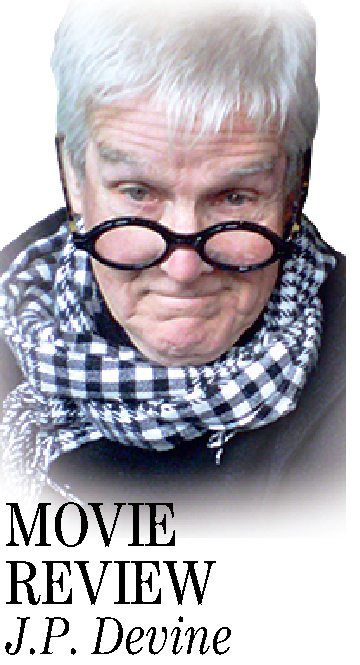“Lucky” is the last film of Hollywood’s legendary character actor Harry Dean Stanton’s career. Harry died unexpectedly September 15 at age 91.
Harry Dean’s name will not be in your address book, but his private number is still in those of every big name in Hollywood.
I suggest you Google Harry Dean; you will be surprised how well you know him.
Now is the time for you two to meet, and what better place than here in this tiny patch of barren sand and brush.
Lucky is a desert rat, blown — along with sagebrush, history and a clutter of forgotten faces — to this small, unnamed desert town by winds full of sand.
Lucky lives on the edge of this purgatorium, where people of color, black, brown and white live in perfect peace and harmony. There are no gyms, Starbucks or McDonalds here, hence the peace.
In a land full of cacti, Lucky has adopted one straggly cactus that strangely resembles him and keeps it in a pot outside his house, where he waters it daily in his underwear.
There is no one he shares his name or blood with. He abides in a neat little house where he lives a spartan existence.
Each day for Harry and his friends is like the one before and after, and probably has been the same for maybe 60 years or forever?
Each morning he performs five or six yoga exercises, has a single glass of milk, a walk to town, coffee and doughnut with a crossword puzzle and an exchange of slender sentences pock marked with bon mots with the owner (Barry Shabaka Henley) and the cook and waitress.
At night, Lucky slides to the bar in the local tavern, “Elaine’s,” where he shares philosophical asides with six characters in search of Jean-Paul Sartre.
An elderly man (cult director David Lynch, who has directed Harry many times) is saddened by the loss of his tortoise (don’t say turtle) named “President Roosevelt,” who “just wandered away.”
There is a handsome and mysterious bar fly (50’s movie teen idol James Darren, looking more now like the late Dean Martin.)
And there is the owner Elaine (Beth Grant), who had ejected Lucky for smoking at the bar so many times she has given up.
We never see these characters in the daylight, and we suspect that they may exist only for Lucky and vanish like celestial smoke when the sun comes up.
We too are lucky because we have come into Lucky’s life in what may be a last summer day.
When he suffers a dizzy spell at home and falls, his doctor (Ed Begley Jr.) tells him, “You’re at the end of your story, Lucky, put your affairs in order and accept it.”
Director John Carroll Lynch, writers Logan Sparks and Drago Sumonja have long been, like everyone else in Hollywood, Harry Dean’s friends, and now at the end of this sidewalk have come together to write a magical elegy.
Some of you will walk away from this film a little confused, mystified, yet strangely intrigued. Students and scholars of films and philosophy may well sense the presence of great writers William Saroyan, Harold Pinter and Samuel Beckett.
And it will be easy, watching Lucky amble the deserted streets of his village or watering his silent cactus, to remember Buster Keaton, who, like Stanton, seemed to exist on film only to disappear when the house lights came up.
It may seem, in your time with these folks, that nothing has happened here, but on the ride home, or upon waking in the middle of the night, you will sense that something has.
You will remember a poignant scene where Harry, invited to a Mexican family’s birthday party, stands with a far away look in his eyes, at the edge of the gathering, and suddenly starts singing a sweet, ancient love song in Spanish, and you will wish you could see the long ago girl who taught him the words.
You will see the missing tortoise again as Lucky and Harry walk away with him.
Along with everyone in Hollywood, I say goodnight Harry, wherever you are, and thanks for the memories.
J.P. Devine, of Waterville, is a former stage and film actor.
Send questions/comments to the editors.




Comments are no longer available on this story